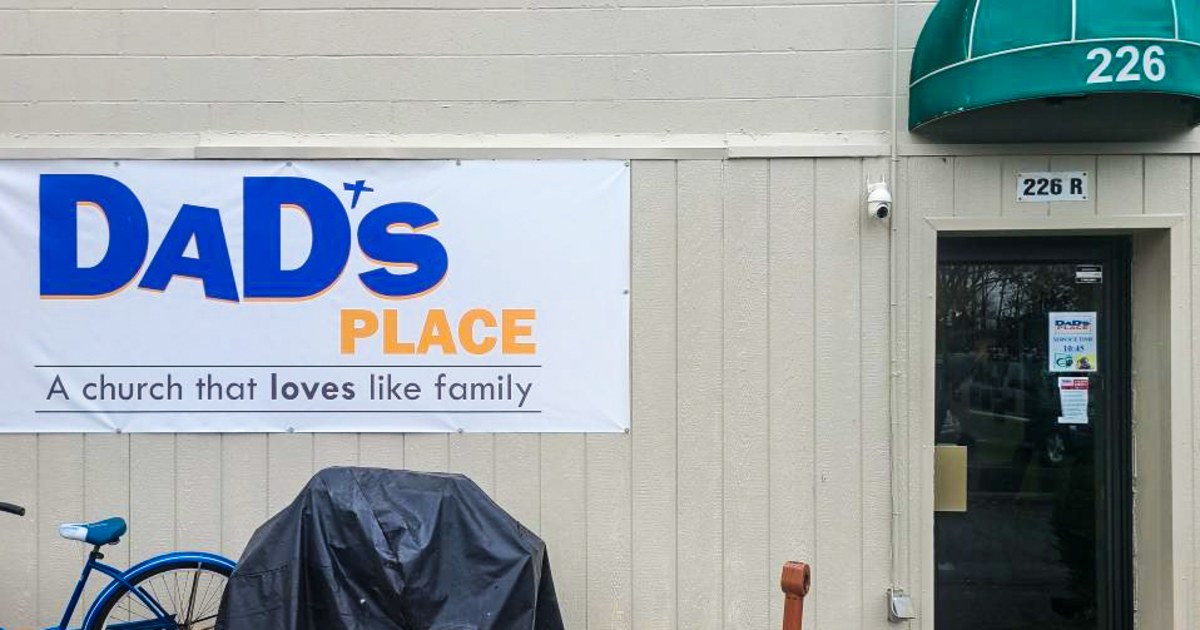An Ohio pastor who was charged with zoning violations for housing people experiencing homelessness has filed a federal lawsuit against the city of Bryan and its officials.
Earlier this year, Pastor Chris Avell decided to keep the doors of his church, Dad’s Place, open 24 hours a day, seven days a week, to reach out to the city’s most “vulnerable.” Bryan is a small city of about 8,600 people, 65 miles west of Toledo.
In December, Avell was hit with 18 zoning violations by the city, which claimed he had violated a city ordinance that says residents can’t stay on the first floor of that property. Further, the local fire chief found a slew of fire code violations at the church.
Avell pleaded not guilty to the charges at his Jan. 11 arraignment, according to online court records.
Now he’s suing the city, claiming discrimination on the basis of religion and claiming city officials have launched a harassment campaign against the church.
The city argues that Avell had been given time to comply with the ordinance after receiving warnings — but apparently refused.
“The only reason this is still an ongoing fire/safety concern is because Chris Avell ignored the City’s notices in the fall, hence forcing criminal charges related to zoning,” the city said in a Friday news release.
Ten days to kick out locals staying at the church
Avell’s federal suit was filed Monday against the city of Bryan, Mayor Carrie Schlade, Bryan Police Department Captain Jamie Mendez, Bryan’s Planning and Zoning Administrator Andrew J. Waterson, and Bryan Fire Chief Doug Pool.
Dad’s Place has operated in the city for the past five years and in March decided to open its doors 24/7.
The church housed and fed those who needed a place to stay for months “without incident,” with an average of eight people staying a night, according to the complaint.
However, the city of Bryan offered a conflicting account, saying in a news release that the police department saw a spike in calls for service in May 2023 regarding “inappropriate activity” at Dad’s Place spanning criminal mischief, trespassing, overdose, larceny, harassment, disturbing the peace and sexual assault.
The city became aware that Dad’s Place was housing people in November, the release said, noting that doing so was “unlawful” because housing people at the church violated a city ordinance that prohibits residential use on the first floor of any building within the C-3 zoning district, which is where the church is located.
On Nov. 3, Bryan city officials issued Dad’s Place a cease-and-desist letter giving it 10 days to stop operating for 24 hours a day or “face legal penalties,” the suit, filed in the Northern District of Ohio, said.
The letter warned that failing to comply would result in criminal misdemeanor charges, which “carry a penalty of $100–$500, up to six months in jail, or both.”
The city said that in ordering Dad’s Place to stop housing people, the city offered to assist “in placing any persons living or staying there.”
A ‘harassment campaign’
The complaint said the church was “bewildered” by the cease-and-desist letter and reached out to city officials to see how it could continue operating in compliance with zoning laws.
Pastor Avell called Waterson to ask how the church could proceed with its ministry to the homeless, and Waterson said they could seek a zoning variance or a conditional use permit — “but that the City would deny such requests,” the complaint said. Avell also allegedly reached out to Mayor Schlade multiple times, but never got a reply, the filing said.

The city said that after receiving the November notice, Avell requested a conditional use permit to allow “continued residential use on the first floor,” and was informed that such use was prohibited and could not be approved.
Dad’s Place refused to kick out those staying at the church, seeing it as “directly contrary to its religious obligation,” the complaint said. In turn, the city allegedly engaged in a “campaign to harass, intimidate, and shut down Dad’s Place,” the suit contended.
The city said in its release that a fire code inspection in November led to the discovery of 18 violations — several of which were “serious and potentially endanger the lives and safety of those in the building,” such as improper laundry facilities installation, inadequate or unsafe exit areas, and limited ventilation.
After the first fire code inspection, Fire Chief Doug Pool wrote a letter to Bryan Police Chief Greg Ruskey recommending criminal charges be filed against Avell for the church’s alleged violations of the city’s zoning ordinance, the complaint contended.
The city officially filed 18 separate criminal charges against Avell on Dec. 18. Avell allegedly learned about the charges through a local newspaper, the complaint said.
After Avell was served with the charges, the city has repeatedly attempted to harass and intimidate the church by visiting the property “under false pretenses” and claiming congregants were “panhandling or using illicit drugs.”
Further, the city keeps changing the “goalposts” and solutions the church must complete to satisfy the city’s fire codes, the filing said.
In one case, the city ordered the church to install a hood over the stove in the kitchen. The church complied, then the city demanded the church install a different hood and get an inspection from the state of Ohio before the city would be satisfied, the complaint said.
Re-inspections for fire code violations in January found most of the violations were resolved, but as of Jan. 16, five hadn’t been properly corrected and Avell was cited for those, the city said. During that Jan. 16 re-inspection, Pool found a gas leak and during that same visit, Pool saw 20 people who had stayed overnight at the church, the city said in a statement.
The city is also allegedly threatening to charge the church’s landlord if the landlord does not evict the church from the property, the complaint claimed.
The suit alleges that the city’s actions violate the church’s rights under the First Amendment, the Equal Protection Clause of the 14th Amendment that forbids discrimination on the basis of religion, and the Religious Land Use and Institutionalized Persons Act (RLUIPA), which says the government may not impose a land use regulation that imposes a “substantial burden” on religious exercise.
The suit also includes a motion for a temporary restraining order against the city.
A determined pastor
Pastor Avell is standing strong in his resolve despite the charges.
In a sermon streamed on the church’s Facebook on Sunday, he said: “Sure, we could build a 24/7 homeless shelter out of town … but together we could build a 24/7 sanctuary inside of town.”
Jeremy Dys, senior counsel for First Liberty, one of the lawyers representing Avell in the case, said in a statement: “Instead of prosecuting a pastor in an effort to drive his congregation from her sight, Mayor Schlade should be supporting a church trying to care for the marginalized in her community (and in the dead of winter). The Constitution and the law demand nothing less.”
Meanwhile, Bryan City Attorney Marc Fishel defended the city’s actions citing “significant safety issues at Dad’s Place.”
“These violations of the fire code noted by the Bryan Fire Chief create a clear and immediate danger to occupants of Dad’s Place, whether transient residents or merely visitors to the facility,” he told NBC News Tuesday: “There are also apartments on the second floor of this building unrelated to Dad’s Place.”
In a statement, the city said that it has been accused of failing to support the homeless in addressing issues at Dad’s Place.
“Nothing could be further from the truth. In fact, a homeless shelter, The Sanctuary Homeless Shelter, that fully complies with the zoning code and fire code operates next to Dad’s Place. The City works cooperatively with this shelter on an ongoing basis as it serves this population well while doing so in a safe and legal manner,” the city said.
